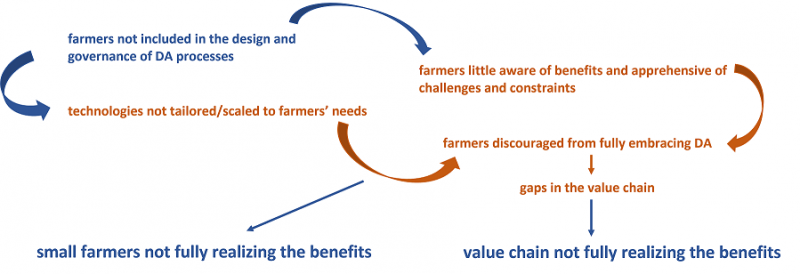What do we mean by "inclusive" digital agriculture?
We mean processes and practices by which normally marginalized actors that have a key role in the agri-food systems, primarily small-scale producers (more realistically, their representatives), are part of the design and governance of solutions since the beginning, and participate in a meaningful way in the decisional process.
While individual small-scale producers may not care and not want the burden of making informed decisions on digital solution choices, their representatives should be empowered to understand options, set criteria and negotiate terms.
Why is real inclusion important not only for producers but for the whole agricultural value chain?
Digital agriculture (DA) is expected to increase agricultural production and productivity, help adapt to and mitigate the effects of climate change, bring about more economic and efficient use of natural resources, reduce risk and improve resilience in farming, and make agri-food market chains much more efficient and transparent. However, small-scale producers are not harnessing the benefits of the ongoing and accelerating digital transformation. The perceived lack of benefits discourages small farmers from fully embracing DA. Consequently, the benefits that DA could bring in terms of farmers’ income and resilience, as well as value chain efficiency and transparency, and environmental and societal goods, are not being realized.

